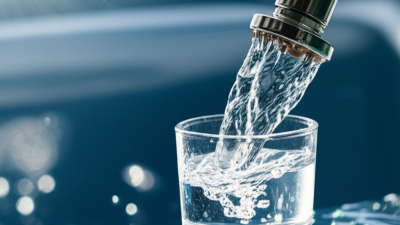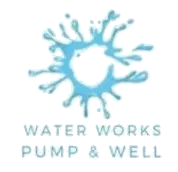Unlocking the Secrets of Efficient Water: The Ultimate Guide to Well Filtration Systems
In an era where water scarcity and quality are becoming increasingly pressing concerns, the efficiency of well filtration systems has never been more critical. According to the Water Quality Association, approximately 13 million households in the United States rely on private wells, highlighting the significance of ensuring that water sourced from these wells is both safe and potable. As water quality issues often arise from contaminants such as bacteria, nitrates, and heavy metals, an effective well filtration system is vital for maintaining public health and safety.
John Smith, a renowned expert in water filtration technologies, emphasizes, “A well filtration system is not just a choice; it’s an essential investment for any homeowner seeking to safeguard their family’s health.” His insights are backed by industry research which indicates that properly designed filtration systems can reduce contaminants by up to 99%, ensuring that well water meets or exceeds federal safety standards. As we delve into this ultimate guide to well filtration systems, we will explore the various types of systems available, their components, and best practices to enhance water efficiency and quality in residential settings.

Understanding the Basics: What Well Filtration Systems Are and Why They Matter
 Well filtration systems are essential for ensuring that the water drawn from wells is safe, clean, and free from contaminants. These systems work by removing various impurities, including sediment, bacteria, and chemical pollutants, thus providing a reliable source of water for households and businesses. Understanding how these systems function and the different types available is crucial for anyone relying on well water, as it can significantly impact health and overall water quality.
Well filtration systems are essential for ensuring that the water drawn from wells is safe, clean, and free from contaminants. These systems work by removing various impurities, including sediment, bacteria, and chemical pollutants, thus providing a reliable source of water for households and businesses. Understanding how these systems function and the different types available is crucial for anyone relying on well water, as it can significantly impact health and overall water quality.
When selecting a well filtration system, it's important to consider the specific contaminants present in your water supply. Conducting a water test can help identify these impurities, enabling you to choose the appropriate filtration method. For instance, activated carbon filters are effective at removing chlorine and volatile organic compounds, while UV filters can eliminate harmful microorganisms.
Tips: Regular maintenance of your filtration system is key. Replace filters according to the manufacturer's recommendations to ensure optimal performance. Furthermore, keeping track of water quality over time can help detect changes and inform your filtration needs. Additionally, consider investing in a multi-stage filtration system for comprehensive protection against various contaminants.
Key Statistics: Water Quality Issues and the Prevalence of Well Water Contamination
Well water is a crucial resource for many households, but it's not without its challenges. Key statistics reveal that up to 30% of private wells contain harmful contaminants such as bacteria, nitrates, and heavy metals. This water quality issue can pose significant health risks, making effective filtration systems essential for ensuring safe drinking water. Understanding the prevalence of well water contamination is the first step toward implementing solutions that protect both health and environment.
To tackle these quality issues, here are some tips for selecting an efficient well filtration system. First, conduct a comprehensive water test to identify specific contaminants present in your well water. This knowledge will guide you in choosing a filtration system that targets those impurities effectively. Additionally, consider systems with multiple filtration stages, such as sediment filters, activated carbon filters, and reverse osmosis setups, to maximize contaminant removal.
Regular maintenance of your filtration system is equally important. Changing filters according to the manufacturer's guidelines ensures optimal performance and extends the lifespan of your system. By being proactive, you can significantly enhance water quality, ensuring that the water used for drinking, cooking, and other household needs is safe and clean.
Unlocking the Secrets of Efficient Water: The Ultimate Guide to Well Filtration Systems
| Water Quality Issue | Prevalence (%) | Contaminant Type | Typical Source | Recommended Filtration System |
|---|---|---|---|---|
| Total Coliform Bacteria | 15% | Bacteria | Septic Systems, Wildlife | UV Purification |
| Nitrate | 10% | Chemical | Fertilizers, Animal Waste | Reverse Osmosis |
| Lead | 5% | Heavy Metal | Old Plumbing Systems | Activated Carbon Filter |
| Arsenic | 2% | Heavy Metal | Natural Mineral Deposits | Specialized Filtration Systems |
| Fluoride | 3% | Chemical | Industrial Waste, Natural Sources | Activated Alumina |
Types of Well Filtration Systems: A Comprehensive Overview of Solutions for Every Need
When it comes to well filtration systems, understanding the various types is crucial for maintaining water quality and ensuring safe consumption. There are primarily three categories of filtration systems: sediment filters, carbon filters, and reverse osmosis systems. Sediment filters are designed to remove particulate matter, such as sand and silt, effectively prolonging the life of other filtration components. According to the Water Quality Association, approximately 80% of ground water sources contain sediments that necessitate the use of such filtration.
Carbon filters, on the other hand, are essential for removing chlorine, pesticides, and volatile organic compounds (VOCs). The industry reports suggest that activated carbon can reduce contaminants by up to 99%, making it a popular choice among homeowners. For more comprehensive solutions, reverse osmosis systems provide stringent filtration by removing dissolved solids, heavy metals, and pathogens. The United States Environmental Protection Agency indicates that RO systems can eliminate up to 95% of total dissolved solids (TDS), making them ideal for areas with challenging water quality. Understanding these filtration options allows homeowners to choose the right system tailored to their specific needs.
DIY vs. Professional Installation: Cost and Efficiency Considerations in Well Filtration
When considering well filtration systems, one of the critical decisions homeowners face is whether to pursue a DIY installation or hire a professional. According to the Water Quality Association, approximately 70% of private wells are prone to contaminants, making efficient filtration essential. DIY installations can initially seem more cost-effective, with average expenses ranging from $200 to $800 for basic systems. However, the lack of professional expertise may lead to improper installation, which can ultimately compromise water quality and necessitate costly repairs.
On the other hand, professional installation usually ranges from $1,000 to $3,000, which includes not just the system but also expert guidance on selecting the right filtration based on water quality tests. A report from the Environmental Protection Agency underscores that professionally installed systems can significantly enhance efficiency, with some achieving up to 99% contaminant removal. While the initial investment is higher, long-term benefits include improved health safety and potentially lower maintenance costs, making it a more viable option for ensuring water quality.
Maintenance Essentials: Tips for Prolonging the Lifespan of Your Well Filtration System
Maintaining a well filtration system is crucial for ensuring clean and safe water supply. Regular inspections should be conducted to check for any signs of wear or damage in the filtration components. This proactive approach helps in identifying issues before they escalate, ensuring the system functions optimally. For example, the filters themselves should be replaced at recommended intervals, as sediment build-up can hinder water flow and decrease the system’s efficiency.

Another essential maintenance tip is to monitor water quality consistently. Conducting water tests for contaminants can help in assessing the effectiveness of the filtration system. Additionally, ensuring that the well and its surroundings are clean and free from pollutants is key to prolonging the lifespan of the filtration system. By keeping the well area clear and practicing good sanitation, you minimize the risk of contamination that could compromise the filtration process. These practices not only enhance the durability of the system but also safeguard your health and that of your family.
Related Posts
-

Understanding the Importance of a Well Water Filter System for Your Family's Health
-

The Ultimate Guide to Choosing the Best Drinking Water Filtration System for Your Home
-

How a Drinking Water Filter System Can Transform Your Health: Essential Insights and Tips
-

Discover the Benefits of Using Carbon Water Filters for Healthier Drinking Water
-
Understanding the Benefits of Advanced Water Systems for Well Water in Rural Areas

